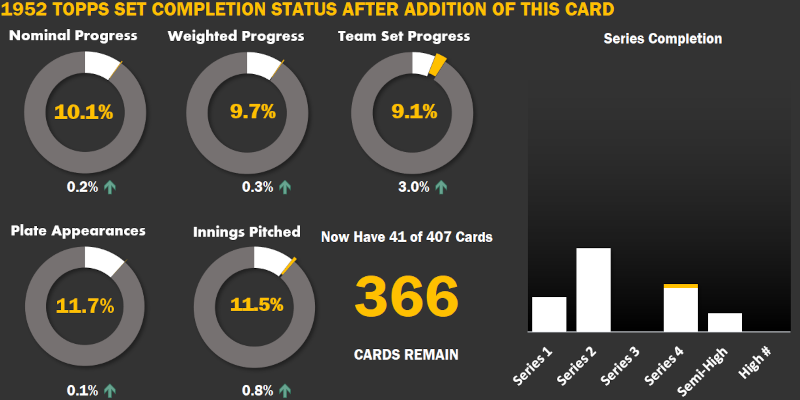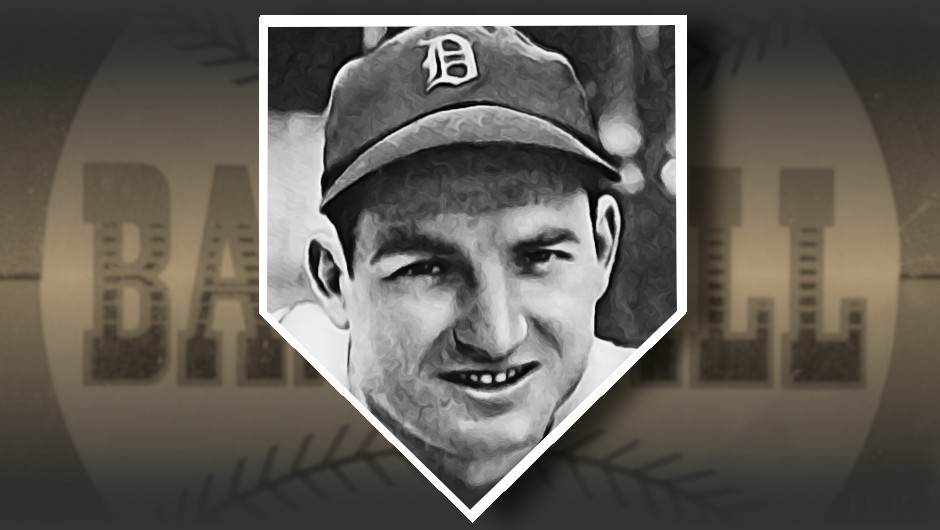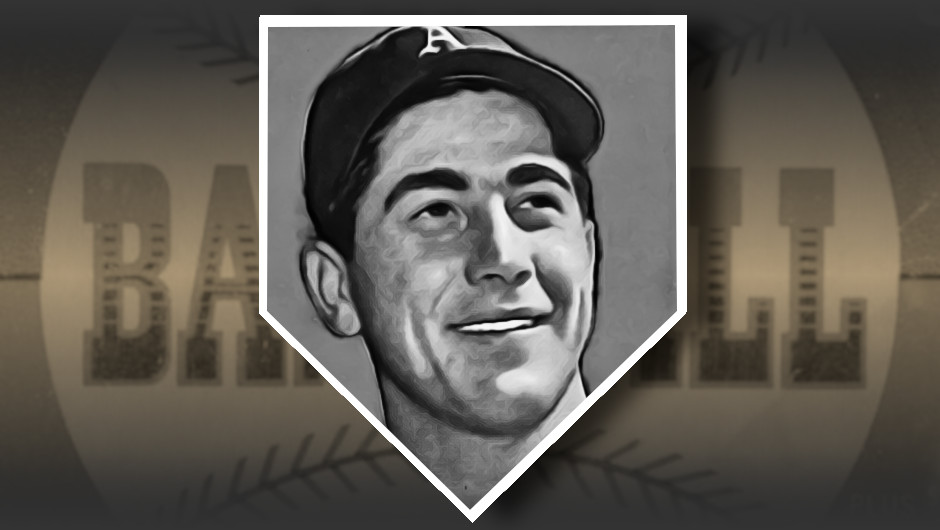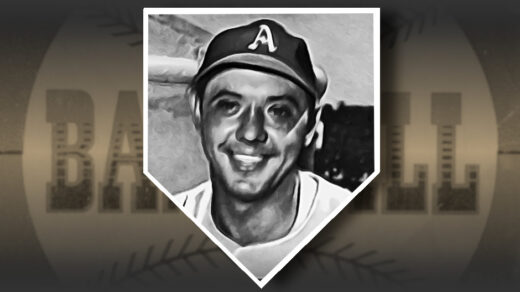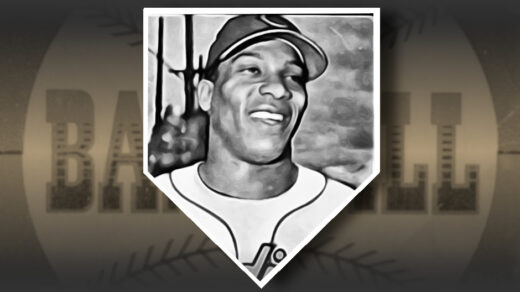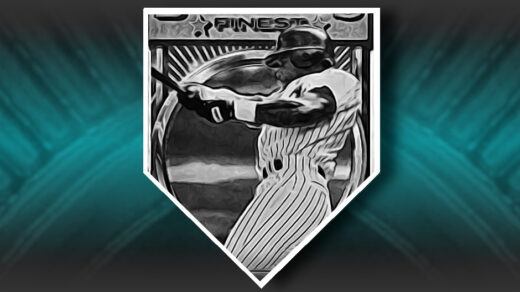This is hilarious. I have a buddy who looks exactly like Brooklyn pitcher Carl Erskine in the 1952 Topps set. That is the same (ubiquitous) smile and I bet it was accompanied by a laugh when the photo was taken. If you’re doing a double take and having deja vu when viewing this card, you just might know Scott. I don’t want to inadvertently dox him, so I’ll leave it at this: You know Scott if the person you’re thinking of once knocked himself unconscious with a hiccup during a blind date. He has the same look on his face as Carl Erskine when telling that story.
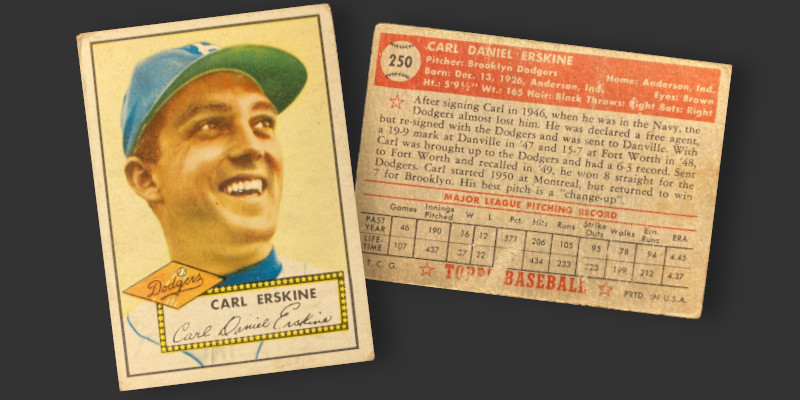
Scott’s a really selfless person and has spent a lifetime helping others. The same words can be used to describe Carl Erskine, the perfect player to match Scott. Erskine was one of the Dodgers that actively rallied around Jackie Robinson and later black players while others either shrugged or outright fought against their addition. The father of a son with Down Syndrome, he dedicated his life to improving the lives of others with this condition. He is a huge proponent of bringing out what makes people special and has fought tirelessly to make the world a better place. A documentary was recently published detailing Erskine’s impact on others and does the job better than I can. Check out the trailer below and then chase down the full version.
Erskine Was Good at Baseball, Too
Probably the biggest highlight of Erskine’s career was spinning a pair of no-hitters. He is one of only 35 players in baseball history to record multiple no-hit games. He joins Warren Spahn, Bob Feller, Virgil Trucks, and Allie Reynolds in the club within the ’52 Topps checklist.
The back of his Topps card says his best pitch is his change-up. This implies an impressive arsenal of other pitches, as a change-up is only effective after a batter has been set up to expect something completely different. This probably played into his ratio of 5.1 strikeouts per 9 innings, a level that was well above average for the era.
Something that probably helped was a refusal to take part in hitting opposing players on purpose. Dodger managers would complain about Erskine not retaliating for perceived slights. Instead, he just worked on making opponents look silly at the plate. Of just over 1,200 pitchers with at least 1,000 innings in the books, Erskine ranks 1,146th in hit batters per inning pitched, hitting less than a batter in 1% of all frames.
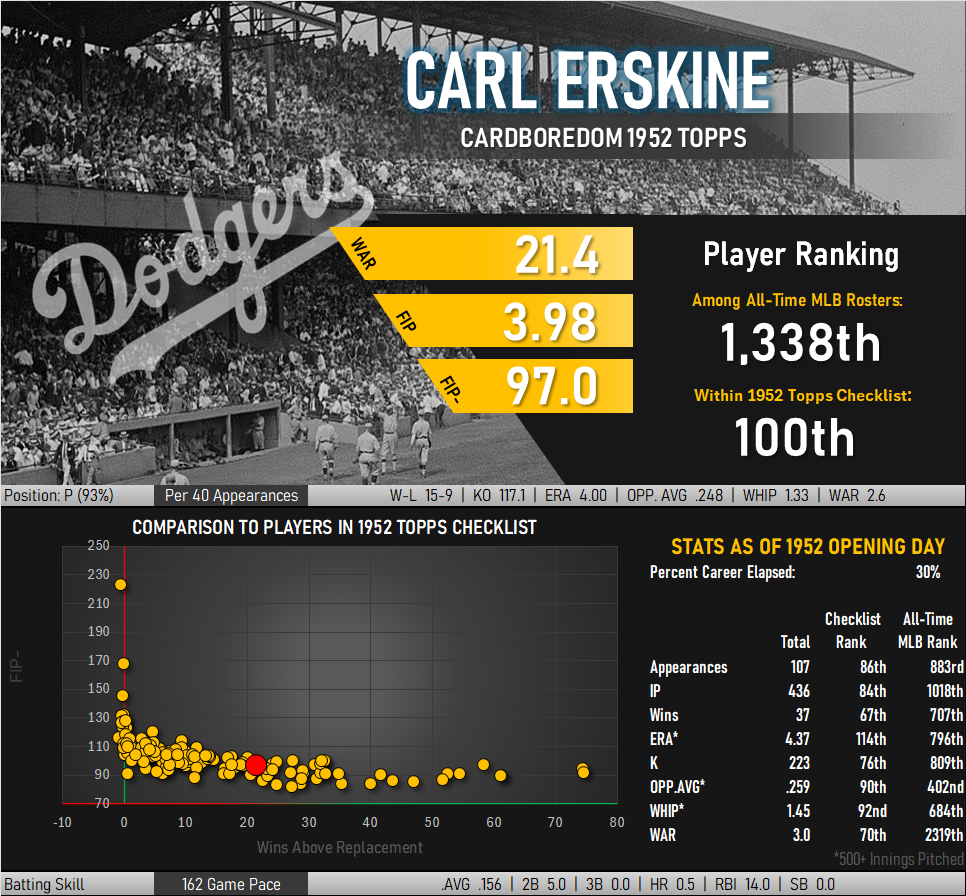
Look at that progress…
With this card I am now 10% of the way towards a complete set of 1952 Topps cards. Completion rises to 13% if the high numbers are ignored, something I am apparently doing as one had not joined the collection by the time this card was added. Of course, no series 3 cards were yet in hand so maybe I can ignore those and push that percentage up to 16%.
Like many others added so far to my set, this card is in lower grade. The picture looks pretty good, but there is some minor paper loss on the back and the corners are pretty heavily dinged. The card was purchased from the same eBay seller that provided the George Kell and Ralph Houk cards previously profiled. All three were ordered at the same time, but the seller forgot to include the Erskine card in the package. A follow-up envelope containing this smiling card arrived a week later and all was well.
